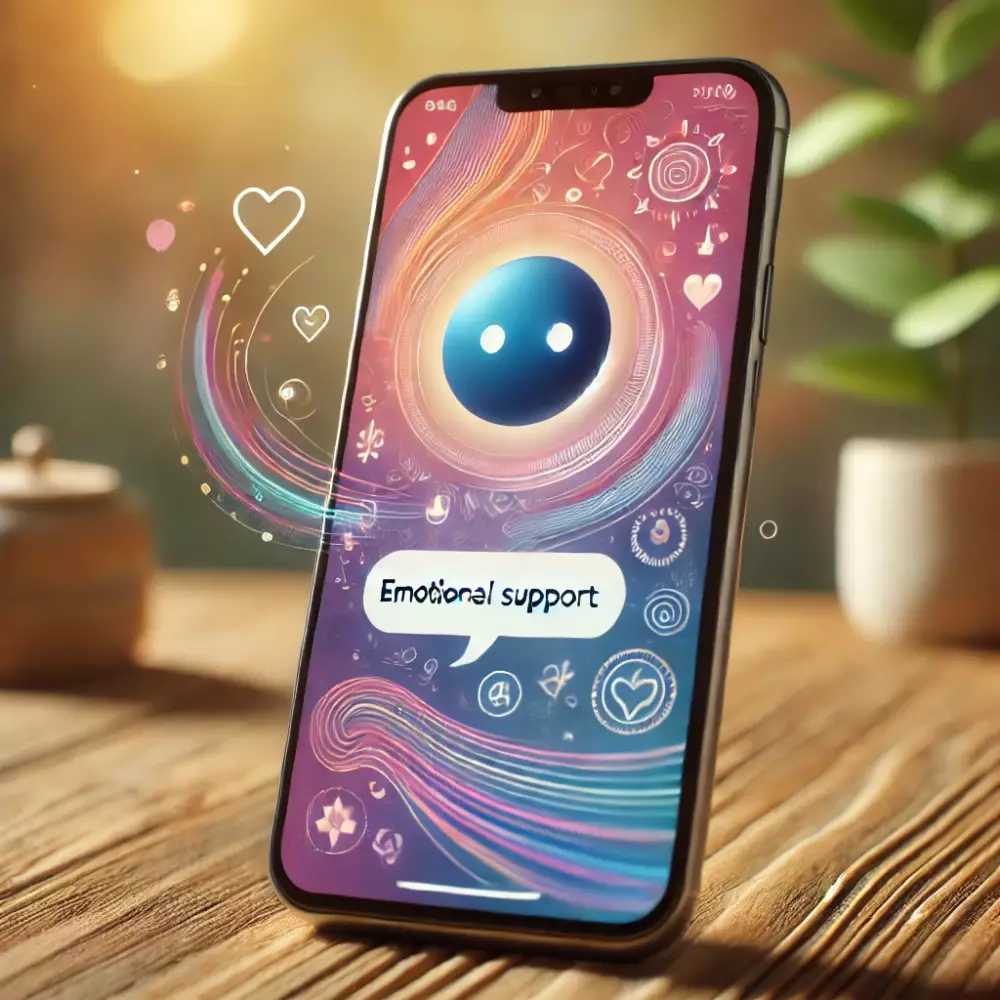
The Rise of AI Chatbots as Therapy Alternatives
This article was collaboratively crafted by humans and AI, blending insights and precision to create a piece for your benefit. Enjoy!
Artificial intelligence (AI) chatbots are increasingly being used as therapeutic tools by individuals seeking emotional support and guidance. While these chatbots, like OpenAI’s ChatGPT, do not replace professional therapists, they offer an accessible, judgment-free space for users to express their feelings and gain a fresh perspective. This emerging trend, however, comes with both potential benefits and critical concerns, as mental health experts warn about the limitations and risks associated with relying solely on AI for therapy.
A Welcoming Companion
Mya Dunham, a 24-year-old from Atlanta, has been using ChatGPT on her phone for the past two months, seeking advice and new perspectives on her emotions. “My goal is to learn a new viewpoint because whatever I think is going to be based on my own feelings,” Dunham shared. She was introduced to the chatbot after seeing a positive review on social media. To her surprise, the bot’s response was warm and inviting: “Absolutely, I’m here for you.”
For Dunham, the lack of facial expressions and perceived judgment made the chatbot a preferable alternative to human therapists she had tried in the past. “It felt more human than I expected,” she said. Her experience resonated with some social media users but also drew skepticism from others who were uncomfortable with the idea of sharing personal issues with AI.
OpenAI’s Custom GPT Feature
OpenAI, the creator of ChatGPT, introduced a feature last year allowing users to design customized "GPTs" tailored for specific purposes while retaining the core capabilities of the ChatGPT platform.
Expert Opinions: Benefits and Risks
Dr. Russell Fulmer, chair of the American Counseling Association’s Task Force on AI, acknowledges that chatbots can help certain populations, such as those with mild anxiety or depression, open up more easily. “Some users might feel more comfortable disclosing feelings to an AI chatbot compared to a human therapist,” he noted. Research supports the efficacy of clinician-designed chatbots in areas like reducing anxiety and building healthy habits.
However, Dr. Fulmer emphasizes that AI should complement, not replace, human counseling. “A therapist can help navigate a patient’s personal goals and clarify misconceptions from chatbot sessions,” he explained. Psychiatrist Dr. Marlynn Wei shares this sentiment, highlighting the risks of general-purpose chatbots giving inaccurate advice or reinforcing biases. “AI can hallucinate and make up things,” she said, stressing the importance of human oversight to ensure safety and accuracy.
Accessibility vs. Accountability
One of the main advantages of AI chatbots is accessibility. They are often free, available 24/7, and can be a valuable resource for individuals who lack the financial means, insurance, or time for traditional therapy. Dr. Fulmer acknowledges, “In these cases, a chatbot is preferable to nothing, but users need to understand its limitations.”
However, minors and vulnerable populations should use chatbots only under the guidance of a responsible adult, as safety parameters may not always be robust. For instance, Character.AI, another chatbot platform, is currently facing lawsuits for allegedly exposing minors to harmful content and encouraging self-harm. While the company has implemented updates, these cases underscore the importance of safeguards.
The Human Element
Psychiatrists like Dr. Daniel Kimmel have tested AI chatbots against traditional therapeutic methods. While impressed by their ability to mimic validation techniques and provide general advice, Dr. Kimmel noted the absence of deeper inquisitiveness and connection-building skills that define human therapy. “Therapists are doing three things at once: listening, connecting the dots, and filtering their responses to be most helpful,” he explained.
Moreover, conversations with professional therapists are protected under the Health Insurance Portability and Accountability Act (HIPAA), ensuring confidentiality. Chatbot interactions, on the other hand, are not covered by these privacy laws, and users are often advised not to share sensitive information.
The Path Forward
Mental health professionals agree that AI chatbots hold promise as supplementary tools for mental health care. Future research is essential to refine their capabilities and establish clear guidelines for safe usage. Dr. Kimmel remarked, “This technology isn’t going away, and understanding its potential is crucial.”
For individuals like Dunham, chatbots offer a nontraditional yet effective way to prioritize mental health. “We shouldn’t judge others for how they choose to heal,” she said, advocating for an open-minded approach to new technologies in mental health.
As AI continues to evolve, it’s essential to strike a balance between embracing innovation and recognizing its limitations. Chatbots can offer support, but their role should remain complementary to the expertise and empathy of human therapists.
Written by Dev Anand from Funnel Fix It Team
